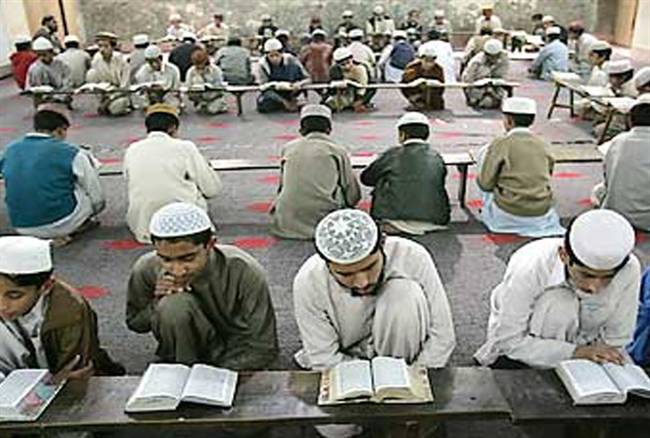
New Delhi : A recent report by the Brussels-based Crisis Group, which focuses on the role of madrassas in promoting religious extremism in Pakistan’s Punjab, corroborates PM Narendra Modi’s assertion that the neighbour “exports” terrorism.
The report titled, `Pakistan’s Jihadist heartland — Southern Punjab’, says jihadi groups like Jaish-e-Mohammad have created parallel legal structures that exploit political dysfunction.
“Absence of the rule of law and the presence of parallel legal structures has resulted in large swathes of southern Punjab (Pakistan) becoming a no-man’s land where criminal and militant networks flourish,” it says.
Parts of Rajanpur and Dera Ghazi Khan districts, bordering Balochistan, have jihadist madrassas linked to Islamabad’s Lal Masjid. It goes on to say that heavily armed groups occupy three small islands on the Indus. The area around southern Punjab’s Rajanpur, Sindh’s Kashmore and Balochistan’s Dera Bugti districts are sanctuaries forjihadist groups due to lack of governance and an inaccessible riverine terrain.
“Deobandi seminaries dominate the madrassa sector in southern Punjab, although madrassa unions of other sects also maintain significant networks,” the reports says identifying seminaries that have given rise to Taliban and anti-India groups. They run educational institutions, including madrassas and regular schools.
Crisis Group says Islamist groups and Sunni proselytising movements like the Tableeghi Jamaat seek to coopt teachers and students, even in colleges. The Tableeghi Jamaat is an agent of `internal conversions’ from Barelvi to Deobandi and expands the potential jihadi recruitment pool. An NGO worker from Jhang area is quoted to say , “Radicalisation starts in the classroom.”
A Pakistani diplomat spoke on the role of madrassas during the anti-terror meet of Saarc nations in Delhi last week, saying seminaries were a big problem as they radicalised youth.
Asserting that Pakistan military’s ambitious National Action Plan made little headway to stop terrorism, the report says Pakistan has not done much to regulate hate speeches either. Despite arrests of hardline preachers, graffiti and advertisements on `short jihadi courses available’, are seen in public.
“Radical Deobandi groups continue to receive donations, particularly from the trader community, while landowners give large sums to local mosques and madrassas, both as insurance and to gain political clout,” it says.
Source : Economic Times
